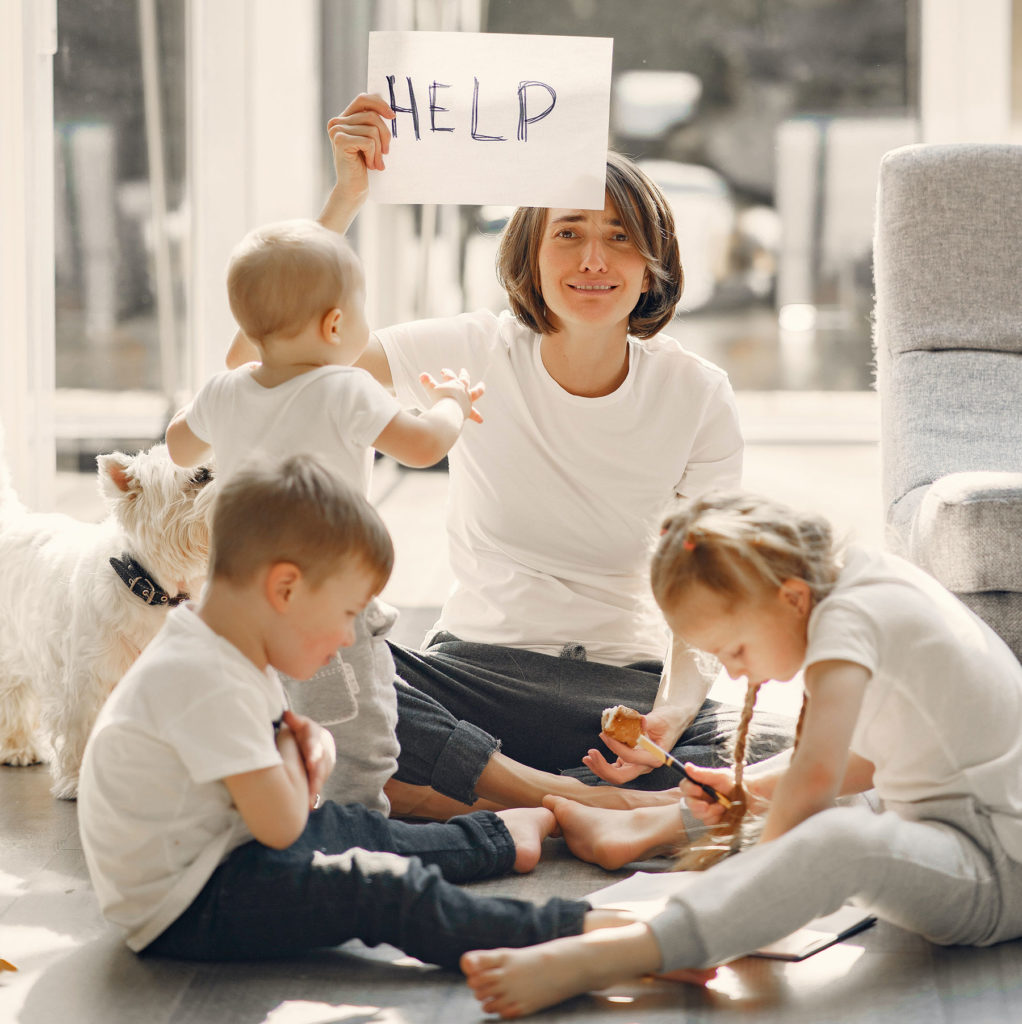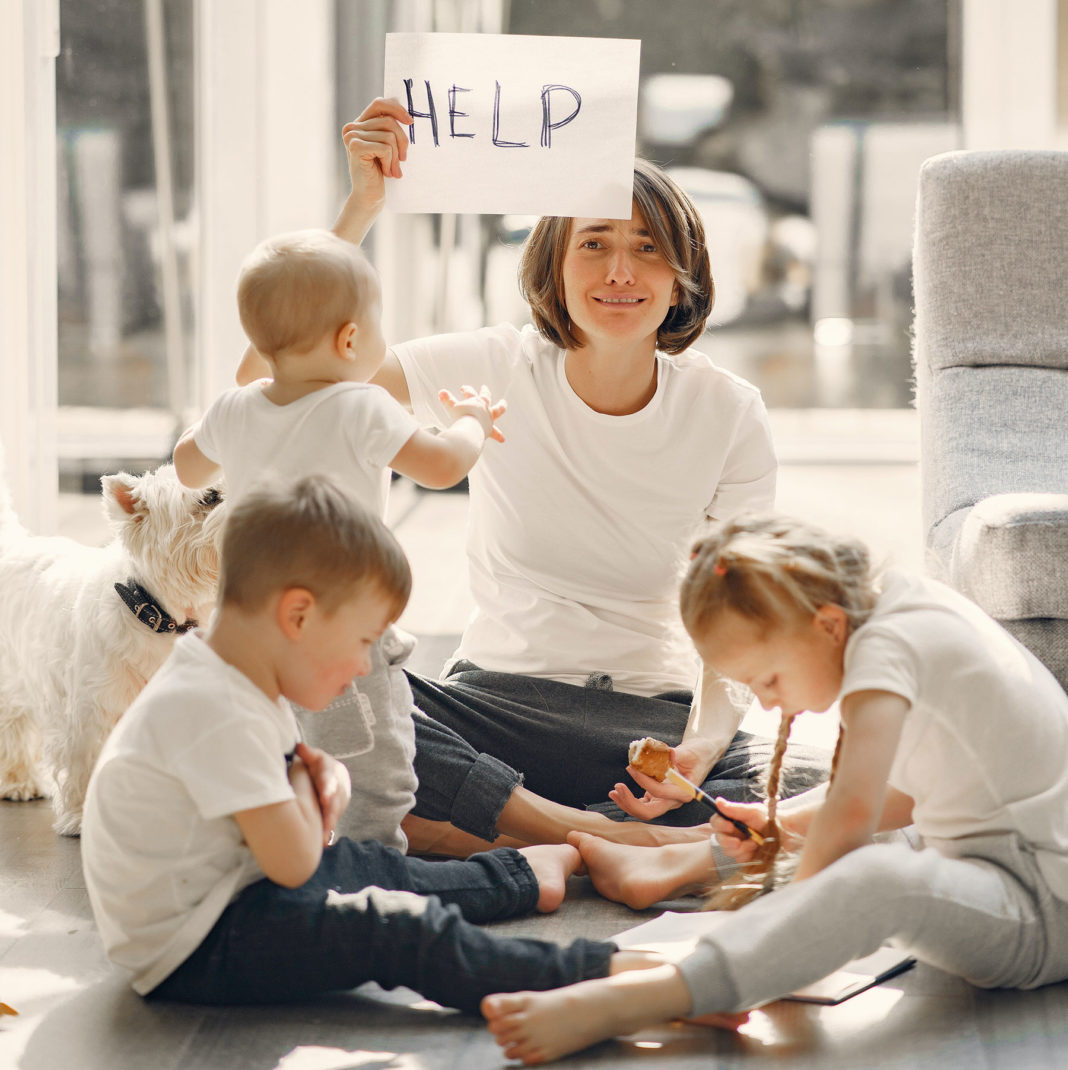After months of various forms of quarantine and social distancing, families are stressed to the max

Parents are struggling
Those with babies and toddlers may be hurting the most due to younger children’s need for intensive caregiving. Moms, dads, and other caregivers are being asked to hold their fingers in the dam, and it’s threatening to burst.
According to a recently released report in the journal Pediatrics, “COVID-19 has had a substantial impact on the well-being of parents and children. As policymakers consider additional measures to mitigate the health and economic effects of the pandemic, they should consider the unique needs of families with children.” Since March, the authors write, “27% of parents reported worsening mental health for themselves, and 14% reported worsening behavioral health for their children.” What can practitioners do to help?

- Recognize that parent mental health is a priority. Children do well when parents do well. As noted above, parents are experiencing unprecedented levels of stress that affect their mental health and in turn, their children’s behavior.
- Promote emotional regulation and mindfulness skills. When parents have tools in their toolbox to help them recognize and mitigate stress, they are better able to navigate the difficulties inherent in this pandemic.
- Acknowledge the lack of equity for families facing this crisis. As many as 1 in 5 babies are in families living below the poverty line. Hispanic and Black infants and toddlers are more than twice and three times, respectively, as likely to live in poverty as their white counterparts. The pandemic has made these disparities even more obvious. (ZERO TO THREE State of Babies Yearbook, 2020).
- Point them toward resources, and then do a bit more. The families you work with may be in need of basic supports due to food insecurity for the first time in their lives. They may be unaccustomed to navigating the systems required to get their needs met. Offer parents support in finding both local and nationally offered resources. Community health workers and practitioners like HealthySteps Specialists can advise on successful referrals that actually work to connect families with needed resources.
- Reassure parents and caregivers that they are not alone. Many families are experiencing acute levels of stress and poverty right now, and tips for parenting during a pandemic can help. Shame may be reduced when parents know that this situation is decidedly not their fault. All babies are born with unlimited potential and we must all work together to advocate for policies that support good health, strong families, and positive early learning experiences.
- Enhance your infant and early childhood mental health training. The more you know about mental health for our youngest community members, the more you can help support them. Access resources from ZERO TO THREE and Alliance for the Advancement of Infant Mental Health.
- Offer your services with a sliding scale. Many families have lost their health insurance coverage, which may affect their access to mental health counseling and other services. Providing a “pay-what-you-can” option can help ease stress.

Many are left in the lurch
Caregivers are being asked to pick up the slack—and there is a lot of slack—as the coronavirus pandemic continues. They can’t keep doing it all, so let’s do our best to support them and get them connected with the necessary resources.
Sarah MacLaughlin, LSW, contributed to this post. Sarah is a social worker, parent educator, and author of the award-winning, bestselling book, What Not to Say: Tools for Talking with Young Children.
References
Patrick S.W., Henkhaus L.E., Zickafoose J.S., et al. (2020, July). Well-being of parents and children during the COVID-19 pandemic: a national survey. Pediatrics. doi: 10.1542/peds.2020- 016824
ZERO TO THREE. (2020). State of Babies Yearbook. Retrieved from: https://stateofbabies.org/
About the Author
Rahil Briggs, PsyD, is a Clinical Professor of Pediatrics, Psychiatry, and Behavioral Sciences at Albert Einstein College of Medicine. Online: HealthySteps , Twitter

Note: Pediatrician Tips is strictly a news and information website about pediatrics. It does not provide medical advice, diagnosis, or treatment. This content is not intended to be a substitute for professional medical advice, diagnosis, or treatment. Always seek the advice of your pediatrician, physician or another qualified health provider with any questions you may have regarding a medical condition for any person. Never disregard professional medical advice or delay in seeking it because of something you have read on this website. The opinions expressed in this column are not always those of Pediatrician Tips and are intended to spark discussion about issues pertaining to pediatrics and pediatricians.







